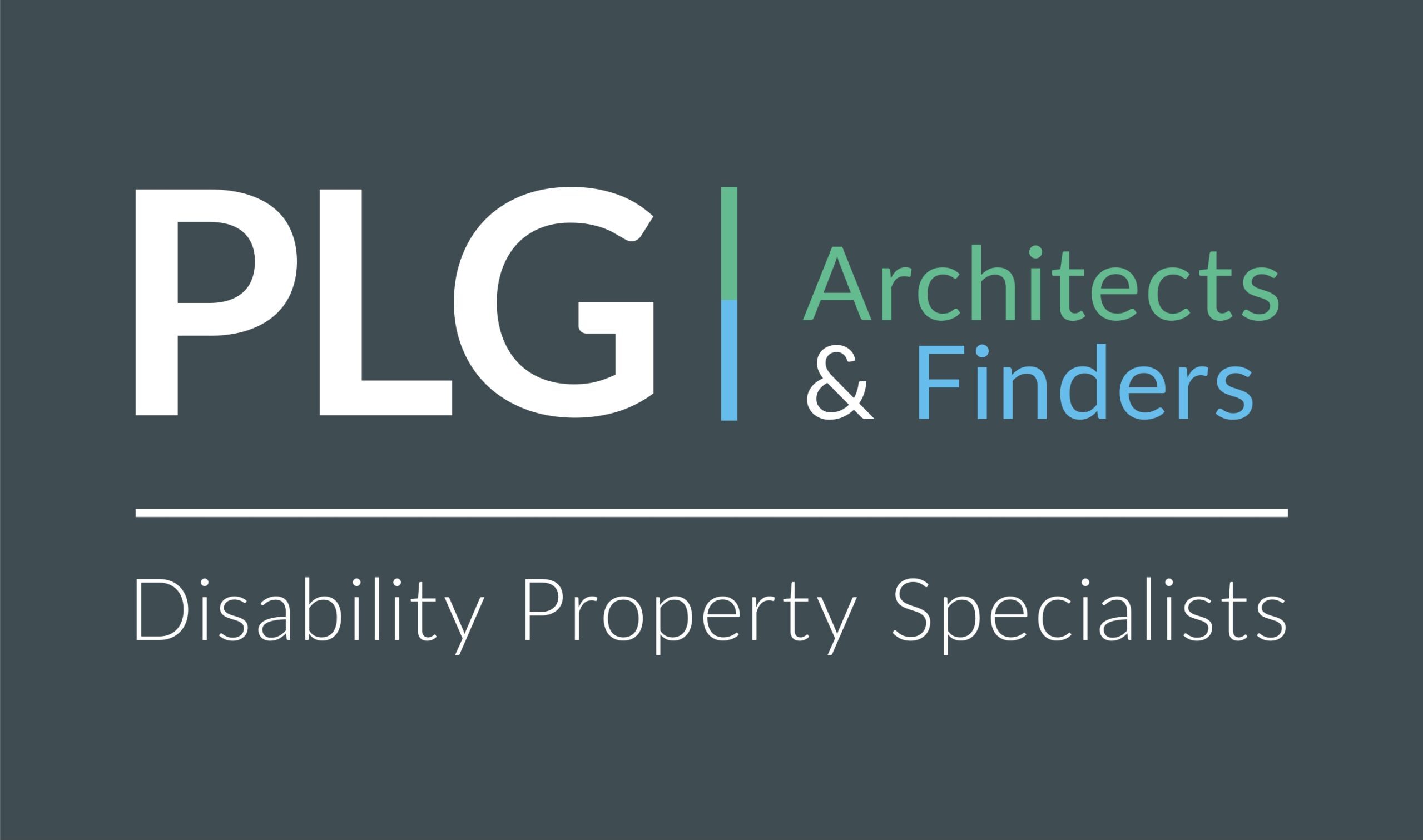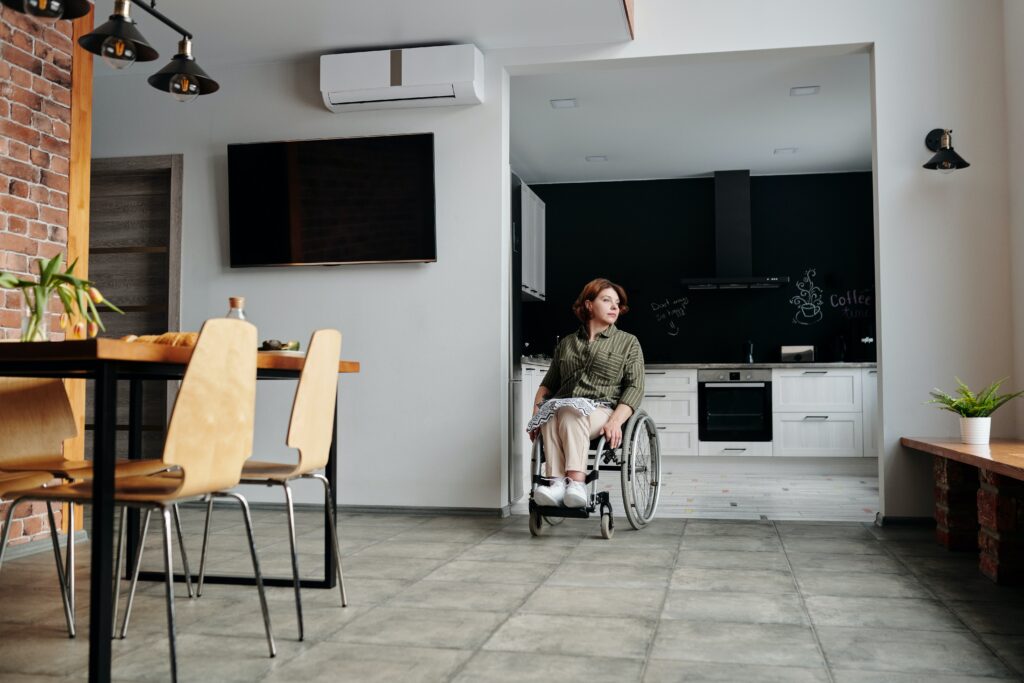Our Managing Director Phillip Gill is regularly invited to speak to teams of solicitors, paralegals or other healthcare professionals to chat informally about disability property matters. During the majority of these discussions Phill is often asked a variety of questions and for this month’s blog we’ve put together some quick answers to some of the most common questions relating to property matters for people with disabilities.
“What is the best way to find a suitable property for my client?”
The answer to this question is different for every individual and family as it depends on their circumstances and family arrangements, so there isn’t a “one size fits all” approach. It is also important to think outside of the box in terms of how the current level of accommodation can evolve to provide a correct solution. If it is in the right location, a decent sized utility room can make a perfect wetroom as a short to midterm solution in a rental property or where the size of an interim payment dictates that the full project needs to be phased accordingly.
Ensuring that all types of contact with agents are utilised is also important. Even in this hyper digital age, ancient methods like phone calls or letters and building a rapport on a personal level can also be quite effective!
“How can I convince a landlord to agree to adaptation works on their rental property?”
There is an easy answer to this. Education and communication. One of the biggest problems clients and professionals seem to face is a lack of understanding of the situation the client is in and how we can be secure or viable as a tenant. In real terms, our clients are invariably more secure than the majority of tenants who are in employment but getting the penny to drop is sometimes problematic. If time is spent educating the agent at the start of the search and assurances are given that the interests of the landlord and the integrity of the property are protected once a property is found, other issues can be dealt with much more simply. As in many other aspects of life, trust and confidence in the person you are dealing with is key and is something that should be promoted from the start of a search not once a property has been found.
“Once our client has purchased a property, how do we begin the adaptation process?”
We think that it is essential that the due diligence undertaken doesn’t just commence when contracts have been exchanged or rest with the conveyancing team. The vast majority of homebuyers reports have so many caveats that it is just as important to arrange additional reports for items such as the electrics, plumbing and drains so that any serious defects can be reflected in the purchase price and also incorporated into the design and cost plans at an early stage. Given current regulations it still amazes us how frequently projects come unstuck by the lack of an asbestos test which, if not identified at an early stage, can prove to be a very costly and time consuming matter to deal with.
Having a clear design brief from the outset is also vital so ensuring that the professionals involved have a good understanding of property matters is also a good starting point. Appointing an OT or other health professional that has a specific property bias will save a huge amount of time, ensure that the property actually “works” and will be extremely cost effective in the long run.
Whilst on the subject of costs, or more accurately cost over runs, we hear that this particular area of property adaptations probably gives people more headaches than any other. A large source of problems are unforeseen items that should have been included in the original specification. By incorporating the previously mentioned reports and due diligence, whilst also ensuring that the correct degree of client and clinical input is obtained, many of these issues can be mitigated and best value can be achieved if they form part of the initial tender documents and are then priced under a competitive process rather than being additions to the contract once work has started. Things left to, or included at, a much later stage are then sometimes difficult to negotiate once work has started and clients can sometimes be at the mercy of the contractor. We know that time is very often precious, especially if a family have been waiting for a long time to get to the property element of a claim but the best advice we can give is that time and thought spent at the outset can save significant sums of money, and stress, in the long run.
“I have received planning approval, how do I find a contractor?”
In simple terms, you need to find someone competent to undertake the project. We all know that this is not an exact science and anyone that has ever undertaken even a modest project knows that this can be fraught with problems. Factor in the issues our clients have to deal with on a day to day basis and this element is invariably one of the most common causes of stress and problems. The process of choosing a contractor is something that should start as soon as a property has been identified and the design process is underway. Ask around, make a few enquiries of other professionals and friends who have been involved in projects. Recommendations are hugely beneficial but thought needs to be given to their aptitude for undertaking this type of work.
Generally, 80% of any disability project is something that any competent contractor should be able to undertake. However, the remaining 20% that involves the specialist and human elements of the project are what will ultimately prove to be make or break. Don’t be afraid or reluctant to ask the difficult questions about how they intend to look after the client.
What is also vital is to make sure they also grasp who actually is the client! Most people outside of our industry will never have even heard of a Deputy let alone worked with one or understands that particular role. Add in to the mix a case that is still in the litigation phase and a family who consistently want to make changes and a recipe for problems is created!
The contractor needs to be under no illusions that any alterations to the project that are not fully costed and authorised are highly likely to go unpaid. Even this message sometimes takes a while to get through but eventually it does, very often after a difficult or “heated” conversation!
What is clear from the workshops that we have undertaken is that property matters in this arena are many fold and can often be quite complex. Add in to the mix the usual issues and stress that we all face moving home or undertaking any building work and it is easy to see why or how problems occur. It is never possible to eliminate every possible issue but by ensuring the correct levels of research are undertaken, ensuring that the right professionals are engaged from the earliest possible stage and, possibly most importantly of all, taking that extra bit of time to think things through, many issues can be reduced or dealt with at source.
Phillip Gill
PLG Consultants

